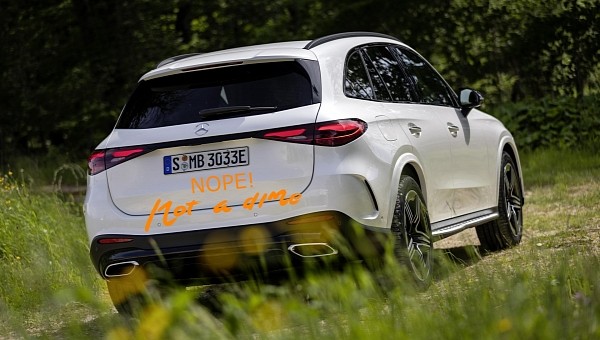The European Parliament passed legislation that requires carmakers to achieve a 100 percent cut in CO2 emissions from new cars sold from 2035. This makes it impossible to sell new combustion-engine vehicles in the 27 EU countries. It would also drive the value of used ICE vehicles into the ground because nobody would want to buy them anymore.
Europe has been discussing phasing out combustion engines since 2021, and European Union countries have agreed to ban the sales of new combustion vehicles starting in 2035. Nevertheless, the decision was not passed into law until Tuesday, when the European Parliament formally approved the decision. This is not the last step, though, thanks to the highly bureaucratic nature of the European Union. To enter into effect, the new law needs final approval, another formal step that is expected to happen in March.
Although a total ban will be instated in 2035, the new law also sets an ambitious target to cut CO2 passenger car emissions by 55% compared to 2021 levels from 2030. Combined with the constraints of the upcoming Euro 7 emissions regulations, which come into effect from July 2025, this would make combustion vehicles lose their appeal much sooner than the dates set in the legislation imply.
First, the new emissions regulations would require more expensive after-treatment solutions, increasing the cars’ price. This would be felt the most in the lower segments of the market, as the smaller cars would make little sense economically. Nevertheless, as electric vehicles are becoming increasingly affordable, ICE vehicles cannot become more expensive.
“The operating costs of an electric vehicle are already lower than the operating costs of a vehicle with an internal combustion engine,” Jan Huitema, the parliament’s lead negotiator on the rules, told Reuters. He added that bringing more affordable electric vehicles to consumers is crucial.
The second problem is that nobody would want to buy a car with no future, even before the end of this decade. That’s because the closer we get to the 2035 deadline, the less a combustion vehicle would be worth in Europe. Before you know it, it will have no trade-in value, and its resale price would not make it worth the investment.
European carmakers are already planning for the new regulations, and many are set to stop producing combustion vehicles even before 2035. Volkswagen, for instance, would exclusively produce electric vehicles from 2033. Although this is the current plan, people might be reluctant to buy an ICE car even before that. That’s why these deadlines would most probably be brought forward.
The combustion engine ban in Europe has been planned since 2021, and it makes a lot of sense. The Continent is densely populated and has a good infrastructure, meaning EV range anxiety should not be a problem. EV adoption in Europe is also higher than in other areas, behind only China. This means that switching to electric vehicles would not pose such a cultural shock as in the U.S.
Although a total ban will be instated in 2035, the new law also sets an ambitious target to cut CO2 passenger car emissions by 55% compared to 2021 levels from 2030. Combined with the constraints of the upcoming Euro 7 emissions regulations, which come into effect from July 2025, this would make combustion vehicles lose their appeal much sooner than the dates set in the legislation imply.
First, the new emissions regulations would require more expensive after-treatment solutions, increasing the cars’ price. This would be felt the most in the lower segments of the market, as the smaller cars would make little sense economically. Nevertheless, as electric vehicles are becoming increasingly affordable, ICE vehicles cannot become more expensive.
“The operating costs of an electric vehicle are already lower than the operating costs of a vehicle with an internal combustion engine,” Jan Huitema, the parliament’s lead negotiator on the rules, told Reuters. He added that bringing more affordable electric vehicles to consumers is crucial.
The second problem is that nobody would want to buy a car with no future, even before the end of this decade. That’s because the closer we get to the 2035 deadline, the less a combustion vehicle would be worth in Europe. Before you know it, it will have no trade-in value, and its resale price would not make it worth the investment.
European carmakers are already planning for the new regulations, and many are set to stop producing combustion vehicles even before 2035. Volkswagen, for instance, would exclusively produce electric vehicles from 2033. Although this is the current plan, people might be reluctant to buy an ICE car even before that. That’s why these deadlines would most probably be brought forward.
The combustion engine ban in Europe has been planned since 2021, and it makes a lot of sense. The Continent is densely populated and has a good infrastructure, meaning EV range anxiety should not be a problem. EV adoption in Europe is also higher than in other areas, behind only China. This means that switching to electric vehicles would not pose such a cultural shock as in the U.S.







